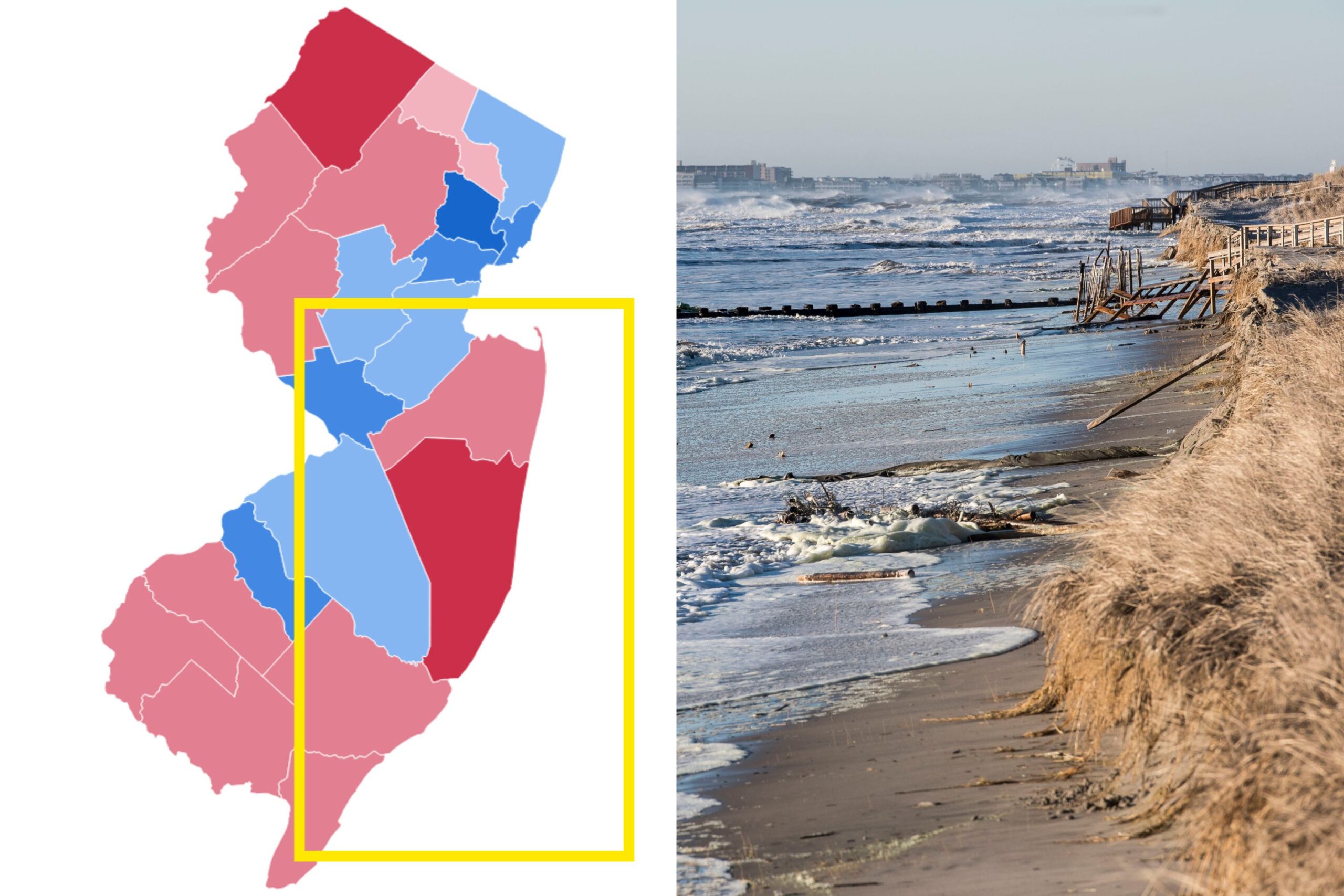
Some of the New Jersey’s most reliably Republican shore towns, which helped deliver strong support to the GOP in 2024, are now confronting an abrupt loss of federal beach replenishment funding — the first time in nearly three decades they’ve been left off the list.
For the first time since 1996, the federal government has allocated no money for beach replenishment projects, canceling work slated for Avalon, Stone Harbor, Ocean City and other coastal communities in New Jersey, Delaware and Maryland.
Why It Matters
Each year, Congress allocates $100–200 million to combat beach erosion. The U.S. Army Corps of Engineers then dredges and deposits sand on eroded beaches in states like New Jersey, with state and local governments covering a small share of the cost. The federal government pays most of it — nearly $29 million funded the last replenishment of Avalon and Stone Harbor, New Jersey, in 2023.
That project added nearly 700,000 cubic yards of sand to the beaches.
This year, however, the Army Corps said its Philadelphia District, which oversees southern New Jersey, will get no funding for 2025, the Philadelphia Inquirer reported Monday.
What To Know
The cuts land hardest on some of the same Republican-leaning towns that handed Donald Trump a decisive win in 2024. In Cape May County — home to Avalon, Stone Harbor and Ocean City — Trump won 58.7 percent of the vote against Democrat Kamala Harris‘s 39.5 percent, flipping the county from Democrat in 2020.
Steve Rochette, a spokesman for the Army Corps, said the Philadelphia District had two projects eligible for funding in 2025 — Avalon-Stone Harbor and the north end of Ocean City — but neither will proceed. Projects in Maryland’s Ocean City and Delaware’s Bethany, Rehoboth and Dewey beaches also received zero funding.
“This is the first time in 29 years this has happened,” said Scott Wahl, Avalon’s business administrator. “That means Avalon will not get a hydraulic fill. You’re looking at tens of millions of dollars.”
Getty Images
Avalon and Stone Harbor have historically relied on federal help for sand replenishment. In 2023, the federal government paid nearly $29 million for a project that placed hundreds of thousands of cubic yards of sand along their beaches. Without that aid this year, Avalon resorted to scraping 39,000 cubic yards from other areas of its own beach at its own expense — a small fraction of what is typically needed.
Wahl said the shore communities are willing to contribute but cannot cover the full costs alone. “Other towns don’t even have enough sand to move around,” he told the Inquirer.
Advocates warn that delaying projects only compounds problems. Dan Ginolfi of the American Coastal Coalition said the limited number of dredging contractors and tight environmental windows mean projects need to be precisely timed. “If we can’t get those projects done in a certain amount of time,” Ginolfi said, “it increases the demand on the dredgers. The cost of dredging is already sky-high, and that just snowballs.”
Howard Marlowe, the coalition’s founder, added: “New Jersey could afford to do one or two projects, but it can’t afford to do all the ones that need to be done.”
What People Are Saying
Scott Wahl, business administrator of Avalon, to the Inquirer: “We look at the beach not as an expense, but rather as an investment that pays rich dividends for resiliency, recreation, and fuels the economic engine on both the state and federal levels.”
Dan Ginolfi, executive director of the American Coastal Coalition, to the Inquirer: “If we can’t get those projects done in a certain amount of time, it increases the demand on the dredgers. The cost of dredging is already sky-high, and that just snowballs.”
What Happens Next
The Army Corps and New Jersey officials say they are continuing to monitor conditions and expect more communities — including Cape May, Ocean City, Sea Isle City and Strathmere — to be eligible for funding when the next budget cycle begins October 1.
Until then, these coastal towns, many of which strongly supported Republican candidates last fall, remain without the federal dollars they’ve depended on for decades.
